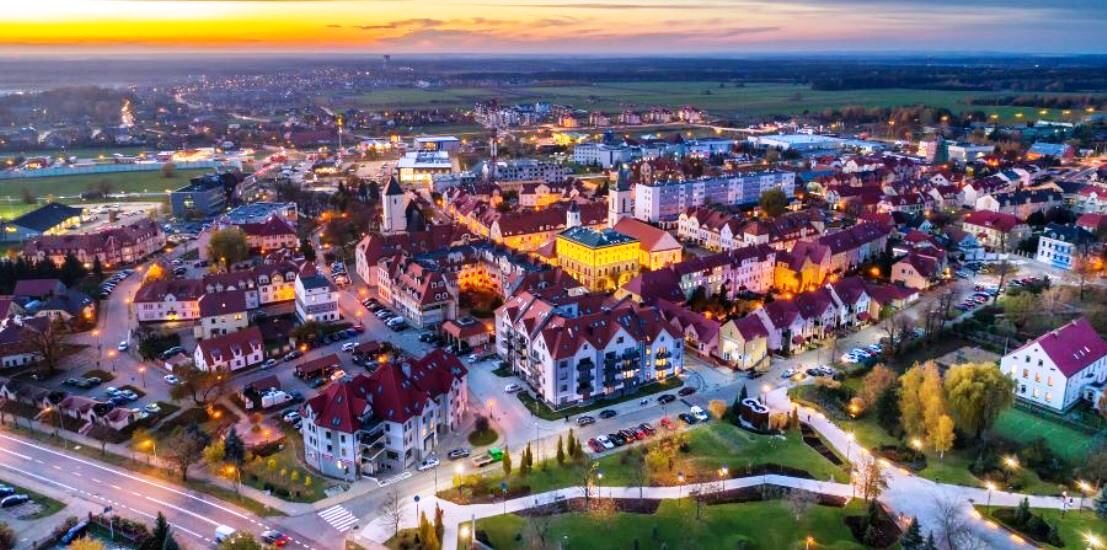- 19 December 2020
- Posted by: andrzej.sztando
- Category: Research, teaching and scientific publications

Abstract: The system transformation of the 1990s for the majority of Polish small towns meant deep, unfavourable changes in the supralocal conditions of their local development. As a result, they were affected by negative phenomena such as loss of enterprises, unemployment, degradation of infrastructure, emigration of inhabitants, reduction of public services and social pathologies, which combined have been defined as the shrinkage of small towns from which they are still struggling to recover. The COVID-19 pandemic has started many socio-economic changes around the world, the current predominant assessment of which is negative. Nevertheless, for Polish small towns, instead of worsening their supra-local situation again, these changes may turn out to be beneficial in the longer term. The article presents the expectations and observations of local authorities in the field of pandemic-induced changes in the relations between their small cities and the supralocal environment identified three months after the outbreak of the pandemic in Poland, the basis of these expectations, as well as the planned reactions in the area of the supralocal perspective of local development strategic governance. The results of the research allowed conclusion that the expected and observed changes in combination with the planned, corresponding, strategic reactions have in general a significant stimulating potential in terms of local development. The article ends with recommendations for the use of information contained in the post-pandemic strategic governance of local development of small towns and other municipalities, in creating anti-crisis policies of states, especially in CEE, and in teaching practice.
I invite you to read. The full text of the article is available here.
Streszczenie: Transformacja systemowa lat 90. dla większości polskich małych miast oznaczała głębokie, niekorzystne zmiany ponadlokalnych uwarunkowań ich rozwoju lokalnego. W efekcie zostały one dotknięte negatywnymi zjawiskami, jak utrata przedsiębiorstw, bezrobocie, degradacja inferstruktury, emigracja mieszkańców, redukcja usług publicznych i patologie społeczne, których kompleks określono jako kurczenie się małych miast, i z których z wysiłkiem wychodzą one do dziś. Pandemia COVID-19 rozpoczęła wiele zmian społeczno-gospodarczych na całym świecie, których obecna, dominująca ocena jest negatywna. Niemniej dla polskich małych miast, zamiast ponownego pogorszenia ich ponadlokalnej sytuacji, zmiany te, w dłużej perspektywie czasowej, mogą okazać się korzystne. Artykuł prezentuje, zidentyfikowane trzy miesiące po wybuchu pandemii w Polsce, oczekiwania i obserwacje władz lokalnych w zakresie spowodowanych przez nią zmian relacji łączących ich małe miasta z ponadlokalnym otoczeniem, podstawy tych oczekiwań, a także planowane reakcje w obszarze ponadlokalnej perspektywy zarządzania strategicznego rozwojem lokalnym. Wyniki badań doprowadziły do wniosku, że oczekiwane i zaobserwowane zmiany, w połączeniu z planowanymi reakcjami strategicznymi, mają znaczący potencjał stymulacyjny w zakresie rozwoju lokalnego. Artykuł kończą zalecenia wykorzystania zawartych w nim informacji w popandemicznym zarządzaniu strategicznym rozwojem lokalnym małych miast i innych jednostek terytorialnych, w kreowaniu antykryzysowych polityk państw, szczególnie z Europy Środkowowschodniej, a także w dydaktyce.
Zapraszam do lektury. Pełną wersję artykułu znajdziesz tu.
